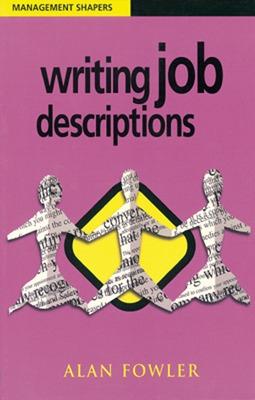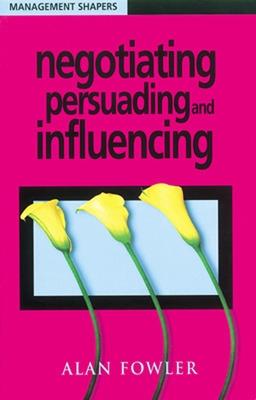Training Extras S.
3 total works
This book guides you systematically through the whole process of writing a job description - ensuring it is clear, accurate and makes a positive contribution to key management tasks. The book includes practical help on: deciding what to include with full-length examples for simple and more complex jobs - defining essential job constituents - maintaining flexibility while avoiding contractual difficulties - using job descriptions to increase the effectiveness of your recruitment, selection, induction and appraisal procedures - tailoring information to assist in job evaluation.
"The Disciplinary Interview" will ensure you adopt the correct procedures, conduct productive interviews and manage the outcome with confidence. It offers step-by-step guidance on the whole process, including: understanding the legal implications - investigating the facts - presenting the management case - probing the employee's case - diffusing conflict through skilful listening and questioning - distinguishing between conduct and competence - weighing up the alternatives - dismissing or dropping the case; disciplining and improving performance through counselling and training.
Progressive training programmes not only equip managers with basic skills and competencies, but deploy innovative, wide-ranging learning strategies to ensure continuous development. Specifically designed as flexible support material, "Training Extras" provides a simple framework to structure learning. This comprehensive series covers all the crucial skill areas for the first-time manager or supervisor, providing: the key issues in an easy-to-read style; diagrams, models and charts for clarity and quick reference; helpful starting points to build confidence and encourage "hands-on" practice; practical advice and tips based on real-life management issues and examples. This series equips all those responsible for training with a set of useful tools designed to provide maximum flexibility, yet to be fully compatible with other learning resources. The booklets offer reference updates for busy practitioners, as well as study material up to NVQ Level 4, and should become core components on self-development and open-learning programmes.
For trainees on formal training courses, the series should function equally effectively as pre-course background reading, as course notes or post-course follow-up material for continuing development. This title helps readers develop the critical skills needed to manage staff effectively, bargain successfully with colleagues or deal tactfully with superiors, thus ensuring that a constructive negotiation process leads to a favourable outcome. Advice and practical guidance is given on: recognizing and using sources of influence; probing and questioning techniques to discover the other person's viewpoint; adopting collaborative or problem-solving approaches; timing tactics and using adjournments; conceding and compromising to find common ground; resisting manipulative ploys; and securing and implementing agreement. The book should be of interest to: trainers, whether in training departments of large organizations, in training companies and consultancies, or operating as freelance trainers; and for everyone who wants to improve their ability to negotiate, persuade and influence.
Alan Fowler is the author of "Negotiation: Skills and Strategies", "A Good Start: Effective Employee Induction, Redundancy and Taking Charge".
For trainees on formal training courses, the series should function equally effectively as pre-course background reading, as course notes or post-course follow-up material for continuing development. This title helps readers develop the critical skills needed to manage staff effectively, bargain successfully with colleagues or deal tactfully with superiors, thus ensuring that a constructive negotiation process leads to a favourable outcome. Advice and practical guidance is given on: recognizing and using sources of influence; probing and questioning techniques to discover the other person's viewpoint; adopting collaborative or problem-solving approaches; timing tactics and using adjournments; conceding and compromising to find common ground; resisting manipulative ploys; and securing and implementing agreement. The book should be of interest to: trainers, whether in training departments of large organizations, in training companies and consultancies, or operating as freelance trainers; and for everyone who wants to improve their ability to negotiate, persuade and influence.
Alan Fowler is the author of "Negotiation: Skills and Strategies", "A Good Start: Effective Employee Induction, Redundancy and Taking Charge".


